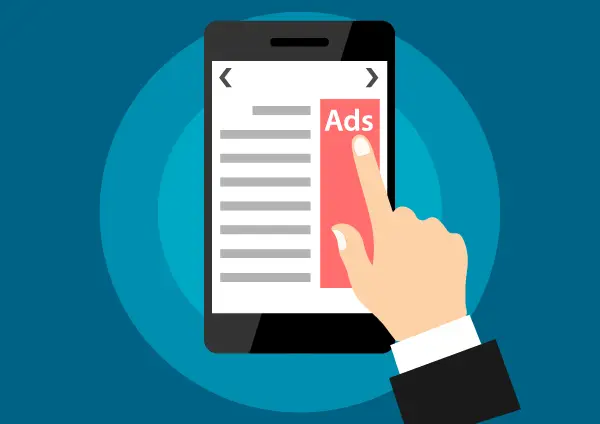When it comes to paid advertising channels, there are few better than Google Ads (formerly known as Adwords). Why? Consider this: where else can you put your ad right in front of someone who is already searching for the service that you offer? The phone book? Ha!
But, many lawyers are dismayed to discover upon searching for their own names on Google and other search engines that a competitor is displaying ads when a user searches for that name. You might expect this if, for example, Pepsi were to run ads against searches for Coca-Cola. But is it really okay for a competitor bidding in Google Ads? Should law firms be allowed to capitalize on the value of your brand and your reputation by using your name or law firm name as a keyword?
How Google Ads Works in 300 Words or Less
To target a search on Google, you have to bid on a price per click you are willing to pay when someone searches for a certain query. You can get very exact and run an Exact match bid that will only display the ad when searches with the same meaning or intent of the keyword are used. For example, someone searching for “divorce lawyer” will match with your ad targeting “divorce attorney.” You can play things a bit more loosely and allow Google to match your ads on searches for things that are related to your target. To continue the same example searches for “family law attorney” or “child custody attorney” might appear if you do a broad match type ad.
Competitive Bid Terms in Google Ads: Intentional or Not?
Years ago, advertisers would be faced with the explicit choice of whether or not to bid on a competitor’s brand. Because these searches do not have a lot of bidders, the prices are very low typically — maybe a few cents per click, compared to a few dollars or a few hundred dollars for a more competitive legal practice area search term. However, in more recent times Google has been getting a lot more liberal with the broad matching strategy by including known brands and searches for generic terms. So, if you search for “Pepsi” and someone has a broad match ad targeting “cola,” Google might display the ad.
The same goes for competitive lawyer search terms: Google is getting smarter about knowing which lawyers are major players in their practice area and may start to include your brand as a broad alternative for your practice area. In a way, it’s a compliment from Google. You have become so well-known that you are almost synonymous with the practice area itself.
So, if you are noticing your competitors bidding on your branded name, it very well may not be on purpose. Google does do this sort of broad matching automatically, plus many lawyers just hand over all of the marketing stuff to their agency without participating actively in choices like whether or not to target branded competitive terms. Of course, some lawyers do make that decision to bid on these terms proactively in hopes that they can sway someone who is considering a rival attorney’s practice.
Competitive Trademarks in Google Ads Copy
While the targeting aspect of ad campaigns may be out of the advertisers’ hands, unless they want to target very narrowly to exact match terms only, for the most part, and ad copy is entirely something they have to choose to run. While Google does now occasionally suggest ad copy for advertisers whose ads are not performing particularly well, for the most part, you have to write your own ad copy.
Including a competitor’s trademark in your ad copy is a violation of Google Ads’ Terms of Service. It may also be a violation of trademark law, though we declined to pine on substantive legal issues. Fair use? Who knows? Either way, if you see your brand showing up in the actual ad text from competitors, that may be something more actionable in terms of legal remedies or simply reporting them to Google Ads and getting their account suspended
Ethics and Competitive Brand Targeting
You might not be surprised to hear that there are many ethics opinions on this topic. Lawyers get very angry when they notice competitors bidding on their brand, so they tend to force these issues through the ethics channels in hopes of stopping the behavior.
Just recently, in June 2021, the Ohio Board of Professional Conduct came down on the side of banning the practice of bidding on a competitor’s branded terms – the names of the lawyers, the law firms, etc. their justification is that it may lead to misleading advertising and confusion of the consumer. North Carolina previously issued a similar ruling, while Texas, Florida, and New Jersey have issued comprehensive opinions allowing the practice.
How to Stop Bidding on Competitive Branded Terms
The big problem with the ethics opinions that frown on outright and competitive brand targeting is that, as we noted at the outset of this article, it is often an unintentional consequence of using standard broad match bidding, as well as applying Google Adwords keyword recommendations, that often include board match keywords.
So, if you want to stop bidding on competitor brand terms, either because the ethics board said so, or because you don’t want fellow lawyers in your community to hate you, how do you do it?
The first solution is called negative keywording. With this practice, you can enter specific terms that are blocked from showing your ads. Of course, in order to pull this off, you would have to know the name of every single competing law firm and lawyer in your area and add them to the negative list — a task that is pretty much impossible.
Another solution is to run very tight, narrowly focused campaigns with exact or phrase match setups. Exact match means Google will only put your ad on searches that are extremely tight and relevant to the keyword you bid on; they might vary a little, such as plurals, but they will not go so far as to plaster your ad on a competitor’s brand term. Phrase match allows the keyword you are bidding on to appear as part of a phrase (“best personal injury lawyer” will trigger an ad for “personal injury lawyer”) and as of 2021, will even venture off to close synonyms of those terms, but will almost certainly not show your ads on a competitor’s branded term.
Of course, if your goal is to push volume, you probably want to run broad match campaigns. Large law firms that move a large volume of cases routinely use these to bring in any weird searches that may be relevant to their practice areas. It is also a good way to research new search terms that you may not have thought of, by running a broad match campaign for a short time in reviewing the list of searches that triggered the ad. If there is a ban on competitive brand targeting in your area, broad match is pretty much a no-go.







